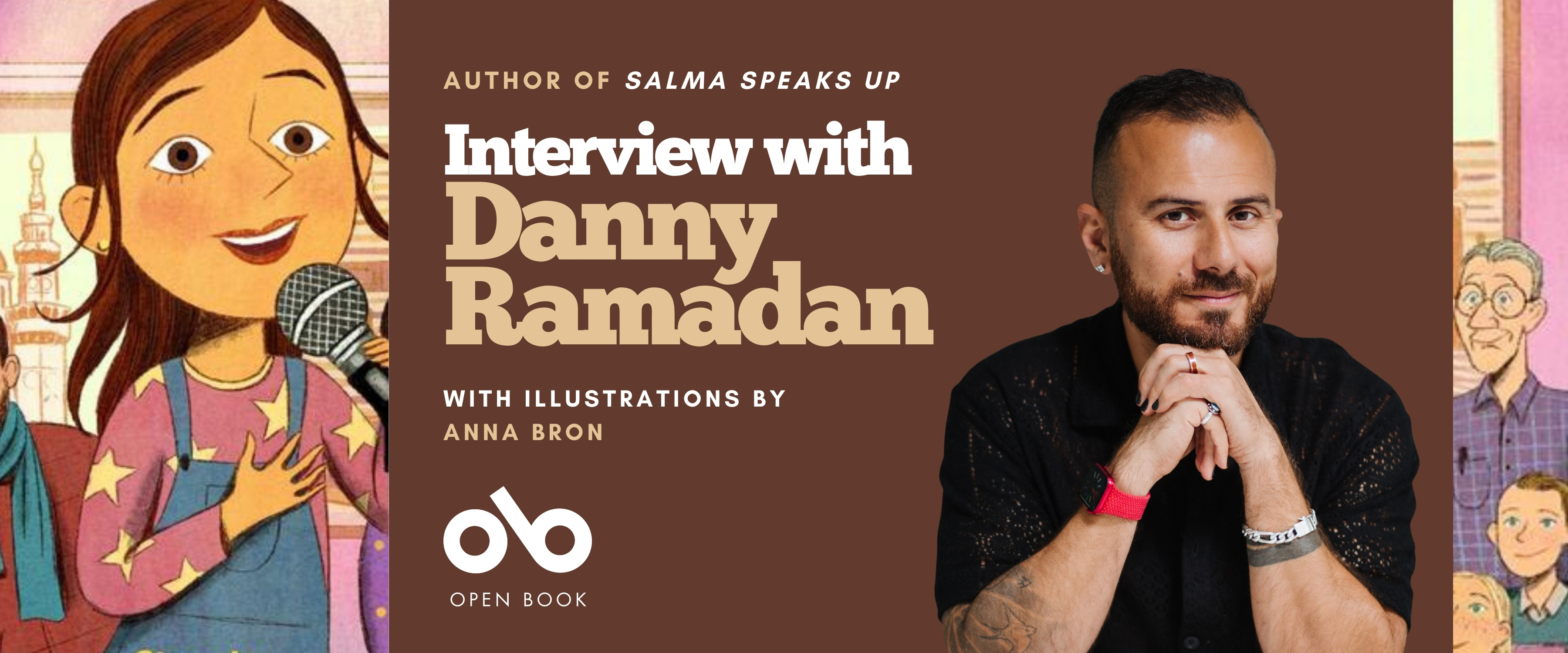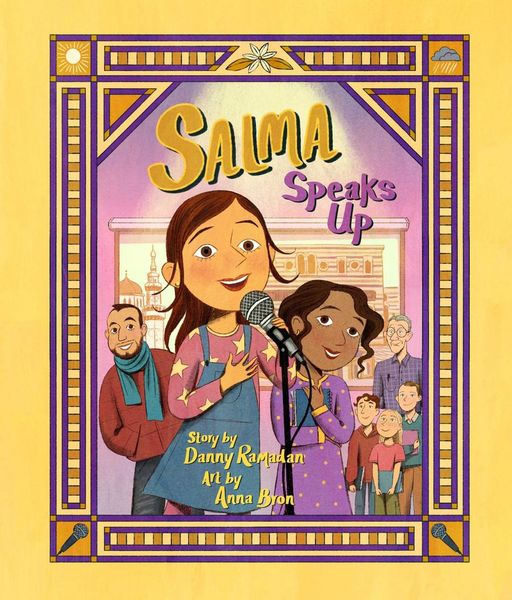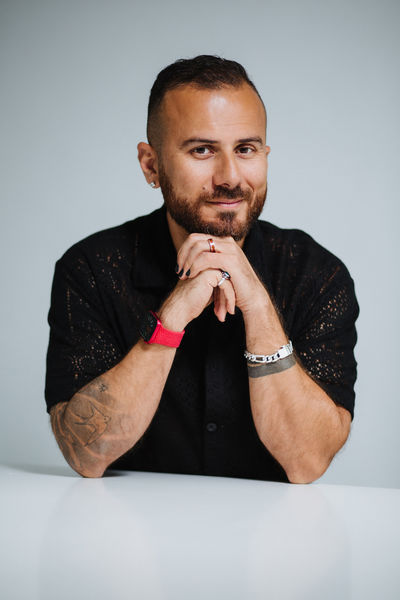SALMA SPEAKS UP in the Anticipated New Instalment of Danny Ramadan's Lauded Picture Book Series
The fourth book in the award-winning Salma series, Salma Speaks Up, invites readers back into the lively, heartfelt world of this truly unforgettable character. Written by acclaimed author Danny Ramadan, this new instalment begins when Salma’s best friend Riya reveals her secret dream of becoming a poet. As a result, the two pals join their school’s Speech Club, where the top speaker at an upcoming assembly will win a spot in a city-wide writing workshop.
But the club isn’t without challenges. Nathan, a fellow member, mocks their English and criticizes the way they speak, leaving Salma frustrated and unsettled. At home, she’s also worried about her beloved Khalou Dawood, who keeps canceling their treasured dinners. While he insists everything is fine, Salma can’t shake the feeling that something deeper is wrong.
Caught between school, friendship, and family worries, Salma learns to navigate not only the voices of those around her, but her own as well. With warmth and humour, Ramadan highlights resilience, community, and the power of self-expression. The story is brought vividly to life through Anna Bron’s illustrations, which capture both the emotional depth and the joyful spirit of Salma’s journey.
We’re thrilled to share our conversation with Danny Ramadan about Salma Speaks Up right here!
Open Book:
Tell us about your new book and how it came to be
Danny Ramadan:
Salma Speaks Up began with a question that lingered as I watched my niece growing up here with her Syrian accent: what does it mean to carry an accent in a world that often asks you to leave parts of yourself behind? The story follows Salma as she wrestles with the small but piercing comments children often hear about their accents: the kind of remarks that can shape how a kid sees themselves. What I love about Salma Speaks Up is how it reflects the subtle courage children show every day. It’s not about grand gestures: it’s about finding your voice, even when it feels fragile. That’s what made me want to write this book.
OB:
Is there a message you hope kids might take away from reading your book?
DR:
If there’s one thing I want children to carry with them after reading Salma Speaks Up, it’s that language is not a burden but a gift. An accent isn’t something to hide: it’s a map of where you’ve been, a reminder of family and culture, and a sign of strength. Too often, children are taught to erase those parts of themselves to “fit in.” I wanted this book to say the opposite: that difference is powerful, and your voice matters.
Your CanLit News
Subscribe to Open Book’s newsletter to get local book events, literary content, writing tips, and more in your inbox
OB:
Did the book look the same in the end as you originally envisioned it?
DR:
Not at all. When I started, I thought I was simply writing about a girl navigating the small cruelties of microaggressions: the teasing about her accent, the feeling of being “othered” at school. But as I wrote, I was also experiencing Seasonal Depression Disorder, and those two threads (Salma’s fictional journey and my personal reality) began to overlap. Writing became a balancing act. I had to hold space for my own emotions while keeping the story accessible to children, ensuring the tone was hopeful rather than heavy. The final version is more layered than I first imagined: it carries both the weight of my lived experience and the lightness required for children to connect with Salma. In the end, the book grew with me.
OB:
What do you need in order to write?
DR:
Coffee is non-negotiable. So are dog cuddles: my two dogs, Freddie and Dolly, are constant companions, and they remind me to step away from the screen when I get too absorbed. I also have a habit of reading my sentences out loud, testing how they flow, whether they sound right in my head. My husband has learned to live with this, though I suspect it annoys him when he’s trying to watch TV in the next room. Writing, for me, is both a solitary act and a noisy one. I like to hear the rhythm of the words as I write them.
OB:
Do you feel like there are any misconceptions about writing for young people?
DR:
Absolutely. One of the biggest misconceptions is that writing for children is easier than writing for adults. The truth is, the projects may be shorter, but they are not simpler. In fact, they can be more challenging. How do you talk to children without talking down to them? How do you navigate complex subjects like racism, homophobia, xenophobia in ways that invite curiosity rather than fear? And how do you write stories that children want to return to again, while also making sure parents feel proud to place your book on their child’s shelf? It’s a delicate balance of honesty, empathy, and joy. And if you can’t make it fun, children won’t turn the page.
OB:
What’s your favourite part of the life cycle of a book?
DR:
My favourite moment comes after the book is out in the world, when I step into classrooms and meet the children who have read it. They bring with them their own interpretations of Salma, their own imaginations of who she is. Sometimes they knit little gifts, sometimes they make hand-drawn cards, and sometimes they ask questions that stay with me long after the visit. It’s humbling and joyful to see how a story that started in my living room can live in their hands, hearts, and voices.
OB:
What are you working on now?
DR:
I’m currently working on two more books in the Salma series: Salma Keeps Her Word and another new adventure that I’m excited to share soon.
______________________________
Danny Ramadan is an award-winning Syrian-Canadian author, activist, and public speaker. His work as an activist has helped provide a safe passage to dozens of Syrian LGBTQ+ refugees to Canada. He is the author of two novels for adults, The Clothesline Swing and The Foghorn Echoes, and a forthcoming memoir, Crooked Teeth. Danny lives in Vancouver, British Columbia.
Anna Bron studied traditional animation at Sheridan College. She illustrated the award-winning picture book Salma the Syrian Chef and the middle-grade novel Harvey and the Extraordinary. She has animated, designed, and directed commercials and short films. She lives in Vancouver, British Columbia.






